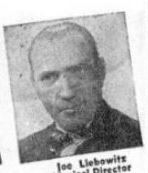"Allons danser Colina"-- I knew that tune since I was a little boy. I played it many times. That 'Colinda', that's what the old folks call a 'two-step waltz'. I had one of my musicians say that there wasn't no such thing as that. I said "Hold it, brother. I'm older than you". He said "There ain't no such thing as a two-step waltz. What number could it be?" I said, "Allons danser Colina." That's a two-step waltz from old times.7For Dennis, a "deux temp" signified a kind of dance.
People would dance in pairs, boy-girl. Then, they'd let go of each other and they would turn on one side, then another. This is why it's called "valse à deux temps" because they were turn on each side. One time on one side for one, and then the other; "deux temp".8
Ouais, donc ouais , Madame Young, donnez-moi la vot' chère blonde,
Le voudrais malheureuse avec, mais ouais, malheureuse,
Mais ouais, oh ouais, mais l’avoir, l’avoir, oh ouais, la grosse blonde,
Pour moi finir mes grands jours avant tu pars, malheureuse.
Ouais, donc ouais, Madame Young, comment ça s’fait d’refuser,Pas miserait de m’marier, ah ouais, j’irais l’après, ouais,Ouais, mais ouais, de l’avoir avec la chère ma grosse blonde,C’est pour moi finir mes grands jours, toujours avec la chère blonde.Depuis quand elle etait ‘tite, j’avais chéri la chère blonde,Je su’ après la guetter, oh ouais, la chère petite blonde,Je desirais que ça s’rait elle dirait "Ouais" à mon idée,D’avoir la chère, mais, grosse blonde pour, ouais, finir mes grande jour.C’est pas quelle est si belle, mais, el’est si bonne et aimable,La chère 'tite blonde, j’l’aime rais dans tout, mais, chère mon gros cœur,Oh oui, 'garde-donc cheri cœur, mais, fait pas ça ‘vec ton nègre,Tu vas me faire, mais, mourir pour toi toujours, malheureuse.
 |
| Dennis McGee and Sady Courville |
According to author and music producer Chris King:
The irresistible charmer Dennis McGee played this song for Madame Ulysses Young, his first wife’s mother, in order to gain the hand of young Marie. McGee was one of the rare artists that could produce a pleading agony and a desperate longing from both his fiddle and his singing.5
It's based on an old African religious song. It was forbidden to be danced because of it's association with voodoo. The "Calinda" is understood to be a scandalous dance. Because of its purportedly lascivious nature, many slave owners forbade their slaves from dancing the Calinda, tied to voodoo-sexual rituals. Tracing the dance backward through time, the Calinda arrived in Louisiana from the Caribbean. It had earlier arrived in the Caribbean from Africa. And, ironically, from there, the dance possibly traces its origins back to Europe and to a troubadour from the Provence region of France. Thus, while the Cajuns left western France and made their way from the North Atlantic to Acadie and later to Louisiana, the source material for "Colinda" traveled from the south of France, through Africa, across the South Atlantic, to the Caribbean, and finally to Louisiana.
Yeah, so yeah, Mrs. Young, give me your dear blonde,
I'd like that, oh my, well yeah, oh my,
Well yeah, oh yeah, well to have her, to have her oh yeah, the big blonde,
With me for the rest of my days, before you leave, oh my.
Yeah, so yeah, Mrs. Young, how can you refuse me?Don't bet on marrying me, ah yeah, I'll go get her, yeah,Yeah, well yeah, to have the dear big blonde,With me for the rest of my days, always with the dear blonde.Since she was little, I've cherished the dear blonde,I'm watching for her, oh yeah, the dear little blonde,I would like if she said "Yes" to my idea,To have the dear, well, big blonde for, well, the rest of my days.It's not that she's so beautiful, but, she's so good and kind,The dear little blonde, I'd love her with all my heart,Oh yeah, so look dear sweetheart, well, don't do that to your man,You'll make me die for you, forever, oh my.
By 1947, Happy Fats and Doc Guidry would re-work the song into the common use title "Allons Danser Colinda". McGee influenced younger generations of Cajun musicians, and shortly before his death was named Honorary Dean of Cajun Music by the University of Southwestern Louisiana (now the University of Louisiana at Lafayette).6
- Louisiana Fiddlers By Ron Yule
- http://www.eunice-la.com/index.php/history/people-of-interest/16-history/history/128-dennis-mcgee
- Do Not Sell At Any Price: The Wild, Obsessive Hunt for the World's Rarest ... By Amanda Petrusich
- Cajun Breakdown: The Emergence of an American-Made Music By Ryan Andre Brasseaux
- http://www.thewire.co.uk/audio/tracks/stream-tracks-from-the-tompkins-square-aimer-et-perdre-compilation
- Louisiana Rocks!: The True Genesis of Rock and Roll edited by Tom Aswell
- Swamp Pop: Cajun and Creole Rhythm and Blues By Shane K. Bernard
- "Accordions, Fiddles, Two Step & Swing: A Cajun Music Reader" by Ron Brown, Ryan A. Brasseaux, and Kevin S. Fontenot
- Interview by Gerard Dole. 1979. Yazoo liner notes.
- Lyrics by Raymond F
Release Info:
NO-108 Madame Young Donnez Moi Votre Plus Jolie Blonde (Madame Young Give Me Your Sweetheart) | Vocalion 5319
NO-109 Mon Chere Bebe Creole (My Creole Sweet Mama) | Vocalion 5319
Find:
NO-108 Madame Young Donnez Moi Votre Plus Jolie Blonde (Madame Young Give Me Your Sweetheart) | Vocalion 5319
NO-109 Mon Chere Bebe Creole (My Creole Sweet Mama) | Vocalion 5319
Find:
Louisiana Cajun Music Vol. 5: The Early Years 1928-1938 (Old Timey/Arhoolie, 1973)
The Complete Early Recordings of Dennis McGee (Yazoo, 1994)
Cajun Louisiane 1928-1939 (Fremeaux, 2003)
Aimer Et Perdre: To Love & To Lose Songs, 1917-1934 (Tompkins Square, 2012)
The Very Best of Cajun: La Stomp Creole, Vol. 1 (Viper, 2016)
The Complete Early Recordings of Dennis McGee (Yazoo, 1994)
Cajun Louisiane 1928-1939 (Fremeaux, 2003)
Aimer Et Perdre: To Love & To Lose Songs, 1917-1934 (Tompkins Square, 2012)
The Very Best of Cajun: La Stomp Creole, Vol. 1 (Viper, 2016)
















